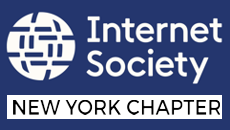Supreme Court on Bilski – no but whatever..
The Supreme Court opinion in re:Bilski is in. With typical ambivalence it upheld the federal court’s decision while rejecting it’s reasoning, replacing the machine-or-transformation test with essentially no test at all. The Court rejected the patent just because it was an “abstract idea”. From the syllabus:
The machine-or-transformation test is not the sole test for patent eligibility under §101. Although that test may be a useful and important clue or investigative tool, it is not the sole test for deciding whether an invention is a patent-eligible “process†under §101. In holding to the contrary, the Federal Circuit violated two principles of statutory interpretation: Courts “‘should not read into the patent laws limitations and conditions which the legislature has not expressed,’†Diamond v. Diehr, 450 U. S. 175, 182, and, “[u]nless otherwise defined, ‘words will be interpreted as taking their ordinary, contemporary, common meaning,’†ibid. The Court is unaware of any ordinary, contemporary, common meaning of “process†that would require it to be tied to a machine or the transformation of an article.. . .Because petitioners’ patent application can be rejected under the Court’s precedents on the unpatentability of abstract ideas, the Court need not define further what constitutes a patentable “process,†beyond pointing to the definition of that term provided in §100(b) and looking to the guideposts in Benson, Flook, and Diehr. Nothing in today’s opinion should be read as endorsing the Federal Circuit’s past interpretations of §101.
So this would seem to leave the whole question of software patents as wide open as ever.
Opinion is at http://www.supremecourt.gov/opinions/09pdf/08-964.pdf

Seth Johnson 2:26 pm on 07/03/2010 Permalink |
The machine-or-transformation test is a hack that diverts attention from the right understanding of software and patentability. I actually see this ruling as helpful in its not relying on that. It essentially pushes us to make the argument against software patents based on their being abstract ideas. By finding the machine-or-transformation principle not sufficient and by not finding an exclusion on business method patents, the court actually pushes us to making the right point.
Below are comments I posted on the following article. I posted a couple of followup responses there:
http://technologizer.com/2010/06/29/supreme-court-leaves-software-patent-issues-unanswered/#comments
Software patents are patents not just on abstract ideas, but on *pure* abstract ideas. By pure I don’t mean “extremely” — I mean “independent of empirical facts or particulars,” like math.
The general purpose logic processor does *pure* logical operations; it follows that the instructions provided to that processor are likewise *pure* logic. However, what translates a pure logical algorithm or process to something of specific use is the devices you attach to the logic processor. It is in principle perfectly conceivable that the *exact same* set of logic instructions could control *entirely different* processes, depending on what devices you attach.
And while higher-level, human-readable code uses language that humans can relate to specific things or uses in the empirical world (variable names like “PartNo” or “EmployeeID” or “Chemical1Proportion,” or function names like “InitiateStirring” or “TurnOnBlender”), at bottom the compiled code provided to the processor is pure logical abstraction.
The point is, the software is in principle not patentable, though it may be true that a particular empirical process that that code is being used to control, is patentable. But what decides that is the empirical process as such, not the pure algorithm expressed by the code.
So I see this ruling as simply excluding the easier resolution to the software patent issue (an approach not really on point and not really addressing the nature of the issue of software patents) that sees software patents becoming untenable along with the invalidation of business method patents, as well as the notion that what makes something patentable is that it is a machine or a transformation.
What makes software unpatentable is not really directly related to either of those points, but rather to the fact that it is *pure* abstraction. You don’t have to say patents only cover machines and transformations to eliminate software patents. Instead, all you have to do is show that software is always abstract because the nature of the logic processor is inherently pure — it deals only in bits/numbers and logical and mathematical operations and algorithms — and when one says those numbers and algorithms are intended to refer to or apply to something more, what you’re really saying is that there’s also an empirical process, alongside the pure code, which is the actual process which may be patentable or not.
The distinction that counts isn’t between machines or transformations and software; it’s between pure abstraction, such as logic and math (which is definitively abstract because it is pure), and plain vanilla abstraction in the form of general principles about empirical reality, such as physical laws (which is a kind of abstraction regarding which the lines between patentability and non-patentability are harder to draw — the machine-or-transformation test is an example that gets kind of close, but doesn’t really make the right point).
Seth Johnson 5:06 pm on 07/07/2010 Permalink |
Now see what’s happened?
USPTO, post-Bilski: A strong presumption against abstract ideas:
http://diffbot.com/read/451169/1977394454